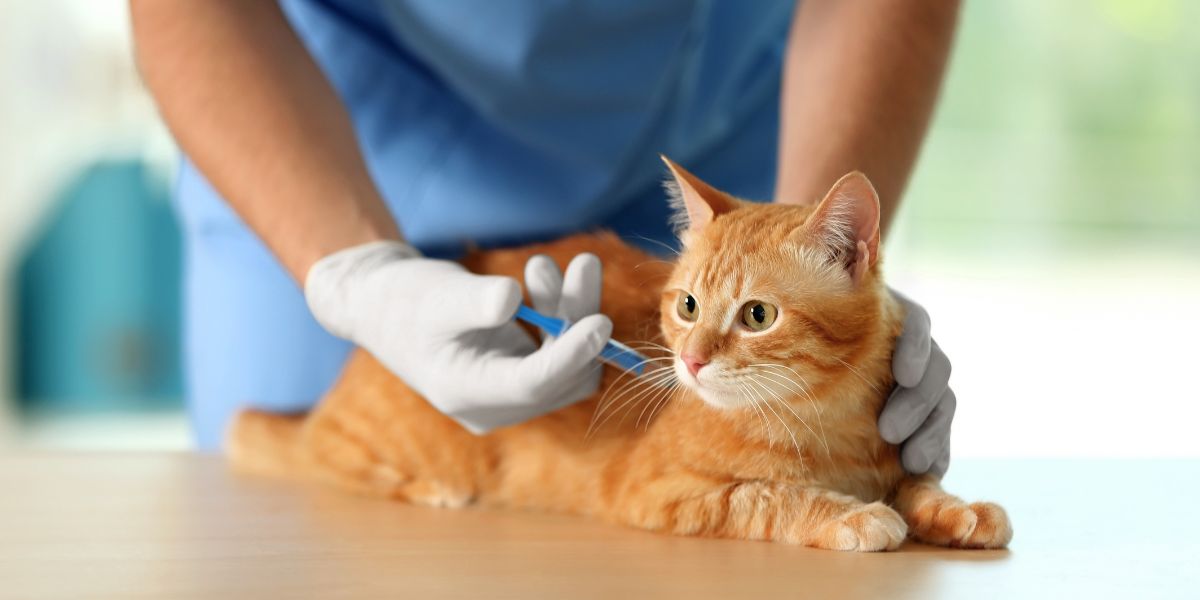Vaccination of cats – how and when to do it
If you have cats, then it is essential to have a complete vaccination schedule for cats to protect them from various external factors that could endanger their health, but also ours. For the cat to be healthy, veterinarians recommend that we do not skip vaccinating little cats. Pathogens are injected through the vaccine, through which the cat forms antibodies. Thus, the cat is protected from various diseases, which could endanger his life. It is also essential that the vaccination schedule is carried out at the right age. Vaccination of cats involves some essential vaccines, but some non-essential ones are made based on specific recommendations depending on the risk of exposure to a particular disease or virus. Your kitten will require two series of vaccinations: the first at nine weeks old and the second at three months old. After that, kittens and cats frequently need annual ‘booster’ immunizations. Keep your kitten indoors until they are fully vaccinated (and neutered).
Vaccination of cats – when it should be done
Vaccination of cats should be carried out at the appropriate age to not expose the animals to the environment where they may come into contact with other disease-carrying animals. At birth, kittens are protected from the antibodies sent by the mother through her first milk, colostrum. During this period, kittens are exposed to various infections, as the concentration of antibodies from the mother is no longer sufficient. Remember that deworming should be done before the first vaccination. This will be done at four weeks, with a booster every 10-14 days. The Biotur Shop platform provides you with an antiparasitic cat pipette from Biokill, administered between the animal’s shoulder blades.
The vaccination schedule for cats should be started at eight weeks (or between seven and nine weeks). The second injection is given three weeks after the first dose, and the third vaccine between 12 and 16 weeks. The veterinarian will provide the cat with annual booster injections for the same viruses. Even adult cats need to be vaccinated, as they may contact the diseases listed in the vaccination schedule.
Vaccination of cats – what vaccines are made?
The vaccination schedule for cats includes essential vaccines and optional vaccines. The latter will be administered on the recommendation of the veterinarian. The necessary vaccines are those against panleukopenia, infectious rickets and caliciviruses. Pet owners are also required by law to vaccinate their animals against rabies if they travel abroad with them.
The vaccination schedule for cats begins at the age of eight weeks, against calicivirosis, rhinotracheitis and panleukopenia. The second vaccine is given three weeks after the first dose, to which is added the rabies vaccine. One year after the last administration, the previous vaccination is repeated.
The cat rabies vaccine is recommended to be given annually. It is a precautionary measure against rabies, a fatal disease for humans, if it comes into contact with an infected animal’s saliva through bites or scratches. If your cat is vaccinated against rabies, then you won’t have any problems with it, even if your pet comes in contact with another infected cat. Mice and rats are also carriers of rabies and can easily transmit the disease to a cat that hunts them. Internal deworming in cats is mandatory before the administration of this vaccine.
Essential vaccines will protect your cat from the following diseases:
– Feline flu – is caused by various pathogens, including feline herpesvirus (also known as feline viral rhinotracheitis (VFR) and feline calicivirus (FCV). Feline flu affects the eyes, mouth and airways.
– Feline panleukopenia virus (FPV – parvovirus) – is a common disease, the main signs being vomiting and diarrhoea. The virus can be contracted from the area where a sick animal lives even after one year. The vaccine is the best solution to prevent this disease and is given at 9-10 weeks, followed by a booster at 4-5 months.
– Feline leukaemia virus (FeLV) – affects the immune system, and the cat becomes vulnerable to other diseases.
The multipurpose vaccine is given at 12 weeks for scabies, infectious hepatitis, parvovirus and parainfluenza.
Depending on the environment in which the cat lives, the veterinarian will add other vaccines to the vaccination schedule for cats. Your cat must have all the basic vaccines so that there is no risk of contracting dangerous diseases, which can cause permanent injuries or even death. It is essential to take your cat to the vet annually to monitor your pet’s health.
On the Biotur Shop platform, you will find quality food from trusted suppliers such as Prolife and accessories for your cats.



